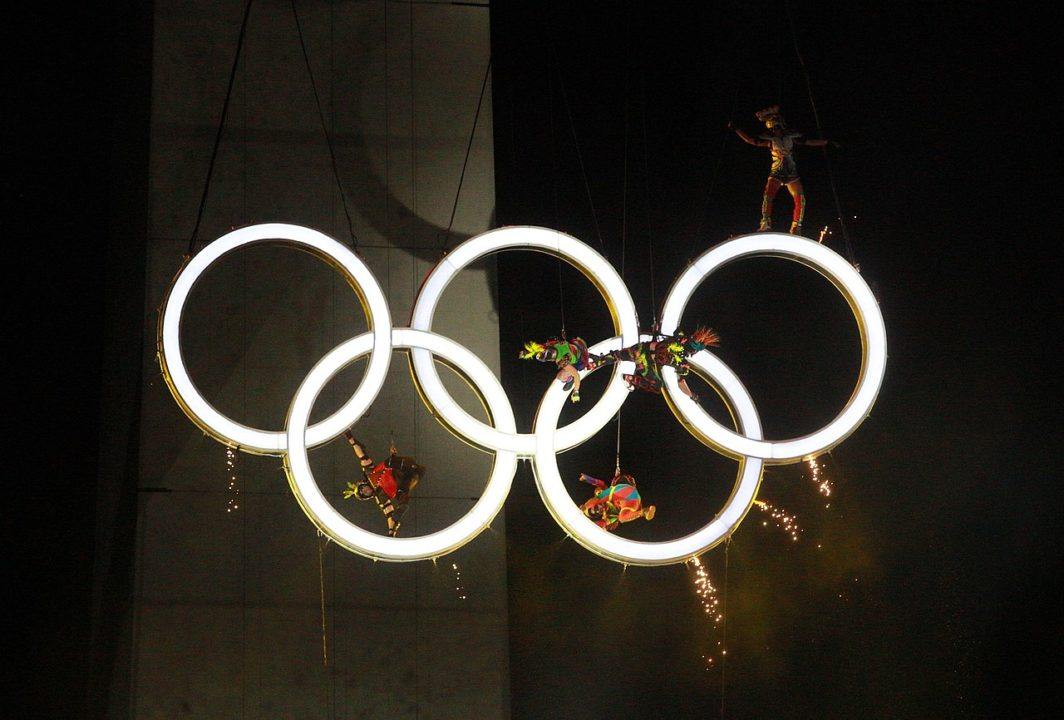With the Olympic Games set to kick off at the end of July, preparations for the Games are beginning in all sports, not just in swimming. In this series, SwimSwam looks at some of the leading news from outside of swimming as athletes around the world continue to prepare and qualify for the rescheduled Olympic Games which are due to begin in Tokyo on July 23rd, and Paralympic Games, which are scheduled to begin August 24th.
Olympics will go ahead ‘even under state of emergency’
A lengthy saga of anti-Olympic petitions and protests has been brought to a sudden halt as the IOC Vice President John Coates said the Games will go ahead, even if Japan remains in a state of emergency.
His comments came during the final Coordination Commission meeting which was held online last week. When asked if the event will go ahead irrespective of the circumstances in Japan, he said: “We’ve successfully seen five sports hold their test events during the state of emergency, all of them with the plans that we had in place to protect the safety and security of the athletes, and the people of Japan, based around the worst possible circumstances, so the answer is absolutely yes.”
Additionally, Tokyo 2020 chief Seiko Hashimoto outlined the three main areas that the organisers are going to be honing in on in order to ensure a safe and secure Games.
“Preparations for safe and secure Games are proceeding steadily, but I am aware that we must work all the harder to ensure that the people of Tokyo and Japan also feel that sense of safety and security.
“In response to any concerns, we are moving forward to tighten our planning in three fields. First, tight limitations on the number of participants entering Japan. Second, tight enforcement of the code of conduct and of health monitoring. And third, a tight review and reconsideration of the Games-time medical system.
“There are 63 days left until the Games. In that time, we will work unstintingly to implement these plans and deliver Olympic and Paralympic Games that are truly for everyone.”
British Olympic Cohort Will Be Vaccinated Pre-Tokyo
After earlier speculation, the British Olympic Association (BOA) has confirmed that all athletes and staff travelling to the Tokyo Olympics will be vaccinated ahead of this summer’s Games.
The BOA has said that the vaccines will be obtained through an agreement that the International Olympic Committee (IOC) has with Pfizer BioNtech.
As a result, the BOA has said that the country’s supply of vaccines and inoculation plans will not be affected by the decision. A statement from the BOA said:
“The UK Government has confirmed that, through an agreement between the International Olympic Committee (IOC) and Pfizer BioNtech, Team GB and ParalympicsGB athletes and support staff will be fully vaccinated ahead of the Tokyo 2020 Olympic and Paralympic Games, based on the unique position of having to travel to Japan to go about their work,” a statement from the BOA read.
The news the same week as IOC President, Thomas Bach, stated that they are estimating more than 80% of people in the athlete village will be vaccinated.
Simone Biles Makes History
Simone Biles, the most decorated gymnast of all time, has become the first woman in history to land a Yurchenko double pike in competition.
The reigning Olympic champion completed the move while competing at the US Classic in Indianapolis after debuting it at training one day previous.
THE QUEEN HAS SPOKEN 👑
Simone Biles landed her Yurchenko double pike for the first time in competition.@simonebiles // #USClassic pic.twitter.com/j07ZweBZ8H
— NBC Olympics & Paralympics (@NBCOlympics) May 23, 2021
This is her first competition in 18 months and her performances have sent shockwaves throughout the sporting community.
Individuals such as Lebron James and former First Lady Michelle Obama expressed their support for Biles on social media after videos of the move went viral.
The move is considered to be one of the most perilous vault maneuvers and is traditionally only attempted by men. When asked afterward about why she attempts such challenging movements, she responded “because I can”.

What I don’t understand is why Japan did not plan ahead and secure vaccines knowing that the OGs were imminent. Japan is an industrialized wealthy country. They managed to get through the pandemic with relatively few cases using voluntary measures (as opposed to mandatory lockdowns) until a couple of months ago, but that works until it doesn’t.
The government was optimistic that a domestic company could get a vaccine into the market, which as we know hasn’t happened.
Additionally in Japan there is a general distrust of foreign pharmaceutical products.
Companies like Pfizer had to go throw some red tape to get their vaccines approved in Japan, and by the time the vaccines were approved other countries had long beaten Japan to the punch.
As a result, Japan is pretty far back in a long line of countries waiting to receive large quantities of vaccines in part caused by countries who started vaccinated early hoarding them.
TLDR Japan has a very inflexible bureaucracy, and started ordering vaccines long after there was a global backlog.
Thank you for your reply. That was informative.
good
$$$$$$